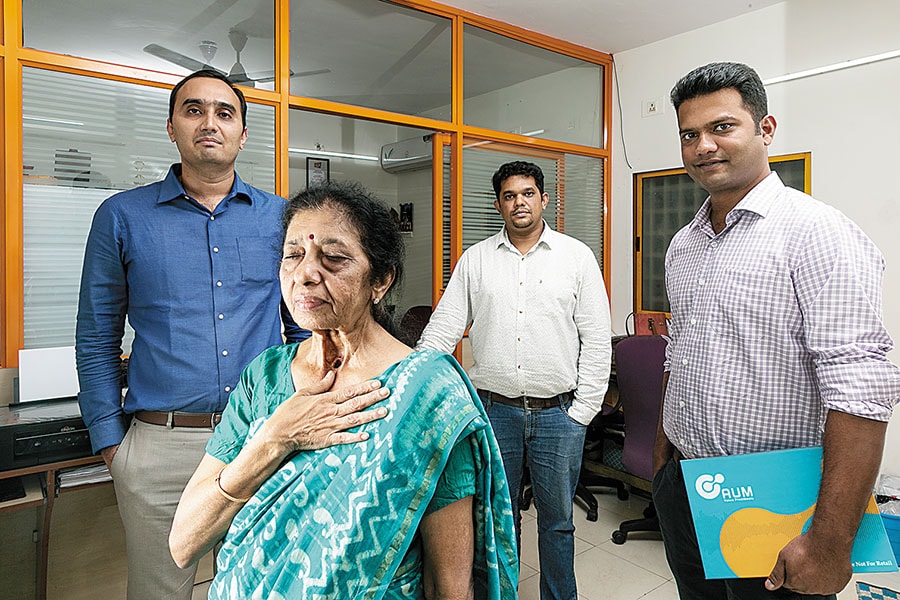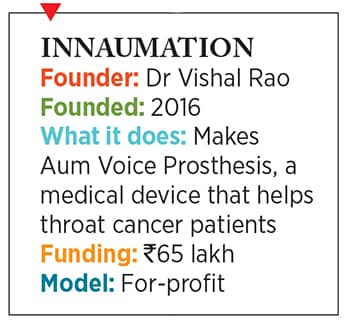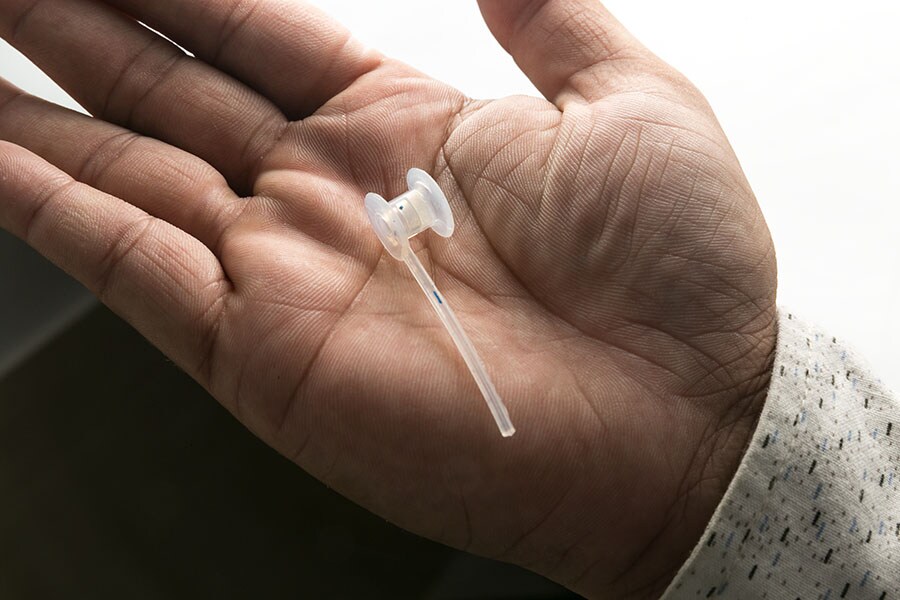Innaumation: Right to speech
Vishal Rao and Shashank Mahesh are bringing back lost voices through a $1 voice prosthesis


 (L to R) Innaumation COO Vishwas Uchila Sushir, CCO Amit Karnik, and CEO and managing partner Shashank Mahesh with Nalini Satyanarayan, a throat cancer survivor who uses an Aum Voice Prosthesis (right)
(L to R) Innaumation COO Vishwas Uchila Sushir, CCO Amit Karnik, and CEO and managing partner Shashank Mahesh with Nalini Satyanarayan, a throat cancer survivor who uses an Aum Voice Prosthesis (right)
In January 2013, a 56-year-old man walked into the OPD of Chord Road Hospital in Bengaluru to see Dr US Vishal Rao. The man was a worker who had lost his voice to throat cancer in 2012 and had ended up losing his job as well. Since then, he had not spoken a word, so he wrote his plea on a piece of paper, begging the doctor to help him get his voice back. It was in that moment that Dr Rao decided to innovate a low-cost device to help patients get their voice back.
The core concept of Aum is simply to cheat the brain. Rao explains, “We needed to create a device to cheat the brain, when I’m talking it is my brain talking not my throat. As per a publication in 1935, when a patient [who lost his voice] punctured his throat, the brain converted the food pipe into a voice box, and he could talk.”
Rao and Mahesh managed to reduce the costs drastically by tinkering with the design. “The mould of the voicebox prosthetics is made out of silicon and it is called a transfer mould. We made the prototype around three years back and then tried to refine it through trial and error. The key was to build an ideal machine that will deliver the right pressures to the throat to enable voice modulation and ensure voice quality is high,” explains Mahesh, the managing partner and CEO, and the brain behind Aum’s design.
While they had enough technical expertise, Social Alpha helped Rao and his team understand how to scale up and grow this business, especially since they want to expand to about 140 countries. “They have been looking at people with a social heart and an innovative brain,” says Rao.The duo has already filed seven patents for the device that is placed surgically through a 15-minute procedure. It needs to be replaced every year. “We want to reach as many people as possible and create a more robust system. There is a special patient liaison team to help the patient in case of any problems,” says Rao, an oncologist and a head and neck surgeon. What started off as a way to help about a handful in a charitable gesture is now set for a pan-India and South Asia launch in January 2019. A kit along with the voice prosthesis, silicon guide wire and a curved knife (to create the puncture) will be sold to hospitals. “We are starting a surgeon training programme to train hospitals on how to use our kit,” says Rao.
Rao and Mahesh firmly believe speech is a right and not a privilege. And they are walking the talk.
First Published: Dec 28, 2018, 11:29
Subscribe Now
